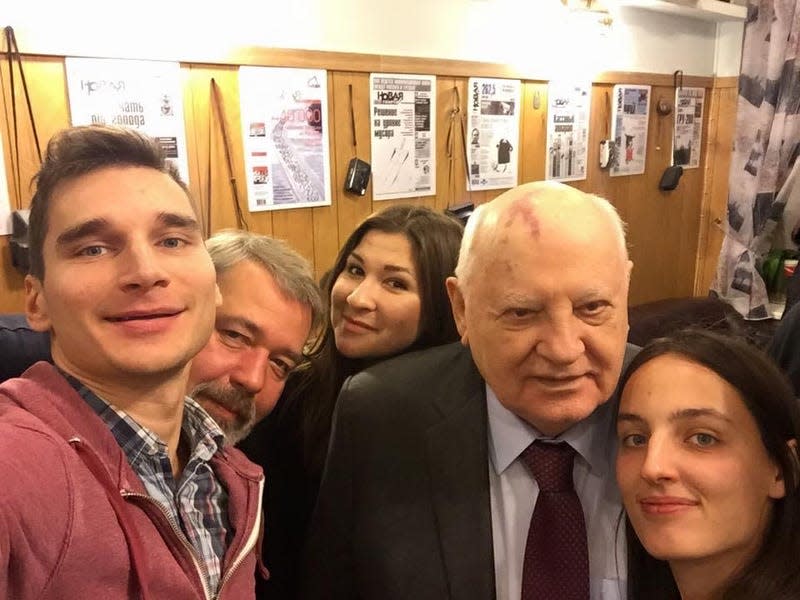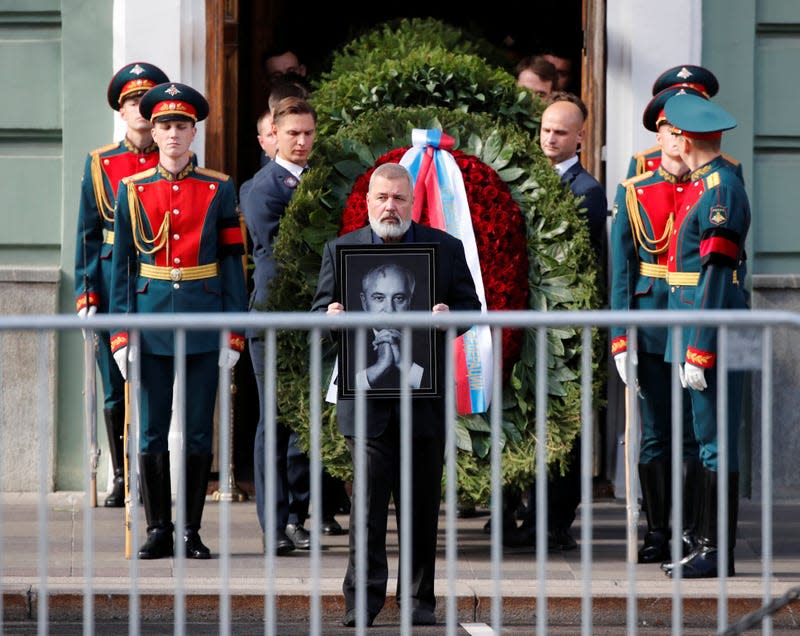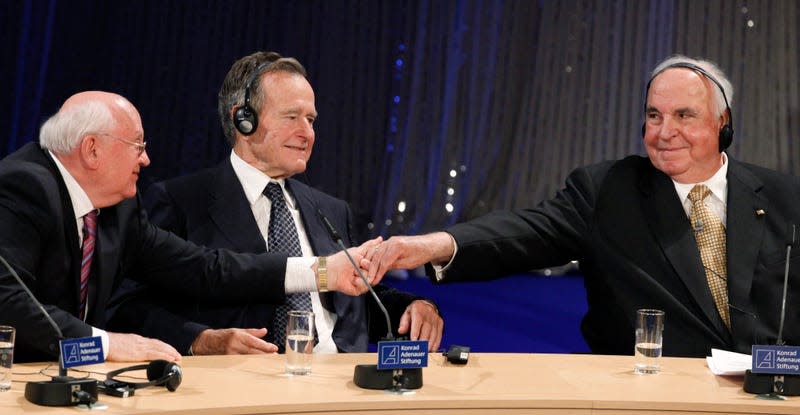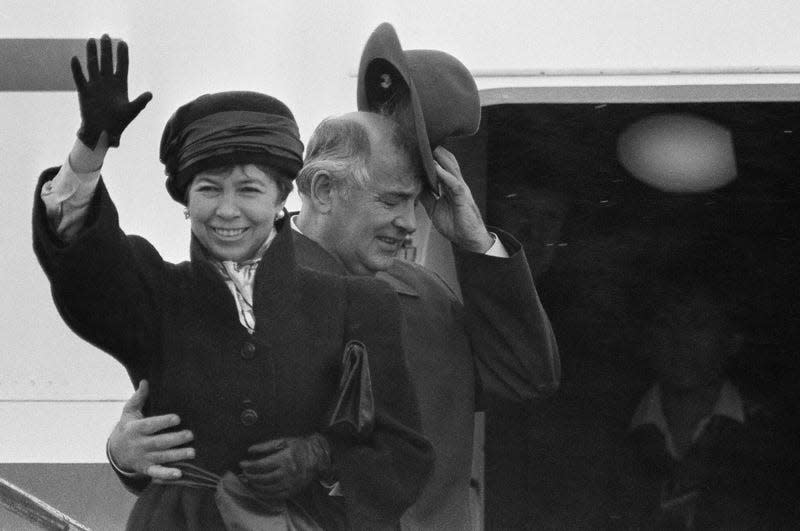Gorbachev's free press legacy can survive Putin
The Mikhail Sergeyevich Gorbachev I knew was not the one known to most of the world—statesman, unwinder of the Cold War, Nobel Peace Prize winner.
My Gorbi was an old romantic who, in 1993, in the midst of the chaos from the Soviet Union’s collapse, helped launch one of Russia’s first independent news outlets—Novaya Gazeta, where I worked until recently.
Read more
Zendaya's mom wasn't exactly welcomed into the Emmys where her daughter made history
Teenage ‘House of the Dragon’ Actor Thanks Intimacy Coordinator After Uncomfortable Sex Scene
How Many Steps You Really Need to Take Each Day, According to Science
"What You Mean by That Chick-fil-A?" Says Black Twitter Following a Shady Tweet
Twitter Bans Weirdo Who Shared Racist Video Changing Halle Bailey's Ariel From Black to White
Using part of his Nobel money, he bought Novaya 10 IBM computers, a fax machine, and a printer—enough to start. We considered him one of the founders of the newspaper. He was still a shareholder of our publishing house when Vladimir Putin’s crackdown on the press forced us to temporarily shut down after Russia invaded Ukraine.
Now Gorbi is gone and many of his policies have been undone after two decades of Putin in power. But Gorbi’s idea of glasnost, of openness and freedom of expression, survives in the work Novaya’s journalists continue to do in exile.
Gorbachev the human
The Gorbi I knew was a funny old man who liked Beluga vodka and was devoted to his wife, Raisa Maximovna, even after her death. By the time I met him, in 2005, he had been out of government for 15 years. He was still famous abroad, a regular on the international lecturing circuit. But in Russia, he was mostly forgotten.
Quite often he stopped by the newsroom, led by his friend Dmitry Muratov, who founded Novaya and is now also a Nobel Peace Prize laureate. I remember Gorbi praising my colleagues after an investigative piece exposed Russian forces’ bungled response to a hostage crisis at a school in Beslan in 2004. They showed the secret service used excessive force, including flamethrowers and tanks, contributing to the deaths of hundreds of people.

Another time, when he was quite sick and couldn’t make it to a party for International Women’s Day—a widely celebrated holiday in ex-Soviet countries—he recorded a video message for our female journalists from the hospital and arranged for them to get flowers.
He was committed to Novaya because he believed the free press is essential for glasnost, for people to learn how to exercise their freedom and keep their leaders accountable.
An end in obscurity
It’s also true that Gorbi did not always side with freedom. After Lithuania proclaimed independence, he demanded that the young republic return to the Soviet Union. A day later, tanks rolled into Vilnius as part of a Kremlin-sanctioned military operation that left 13 dead and hundreds wounded. Later, Gorbi denied that he placed such an order, blaming his hawkish generals instead. But it’s clear he wanted to prevent the USSR from crumbling.
He failed, and that’s what most Russians remember him for today. In his last years, he found himself alienated. At his funeral, it was Muratov who led the procession. Putin did not show up.

Just a few days after Gorbi’s death, a district court revoked Novaya’s publishing license. If our appeal to the Russian Supreme Court fails this week—and many fear it will—it’ll make it illegal for Novaya Gazeta to operate in Russia.
Glasnost today
Since Novaya stopped publishing on March 28th, its journalists have started three new outlets, Novaya Gazeta Europe in Riga, Kedr.Media, a website focused on environmental issues in Moscow, and EU-based Prodolzhenie Sleduet (ProSleduet Media channel), which I run. We continue to produce the kind of hard-hitting investigative journalism that Novaya no longer can. I’d like to think that Gorbachev would have celebrated our efforts with Beluga.
Near the end of his life, he could barely walk. He lived alone but was not bored. He regularly threw small parties at his home, still protected by the state secret service, or at the Gorbachev Foundation, a monumental five-story building on Leningradskoe avenue in Moscow. He would crack jokes about his dead friends George H. W. Bush, Ronald Reagan, and Helmut Kohl. I can no longer recall the punchlines, but they always made him look smarter than them.


Muratov was a regular at these gatherings. He recalls that a few years ago, at a rare public lecture Gorbachev was giving, Muratov was handed a note. In it, Gorbi suggested the two go find some girls. They quietly slipped away into the cold March night. They got into the car, stopped at a supermarket, and bought flowers and vodka. Twenty minutes later, they wound up at the cemetery.
“Here we are,” said Gorbi as they approached Raisa Maximovna’s grave. “And here is my girl.” He is now buried next to her.
—
Pavel Kanygin is executive editor of Prodolzhenie Sleduet media, a digital Russian-language outlet based in western Europe. Until the spring of 2022, he was a contributing editor for the independent newspaper Novaya Gazeta, founded by Dmitry Muratov, winner of the 2021 Nobel Peace Prize. He has covered the Russian-Georgian and Russian-Moldovan conflicts, as well as the Ukrainian crisis since it began in 2013. He was a 2020 fellow at Harvard University’s Nieman Foundation.


